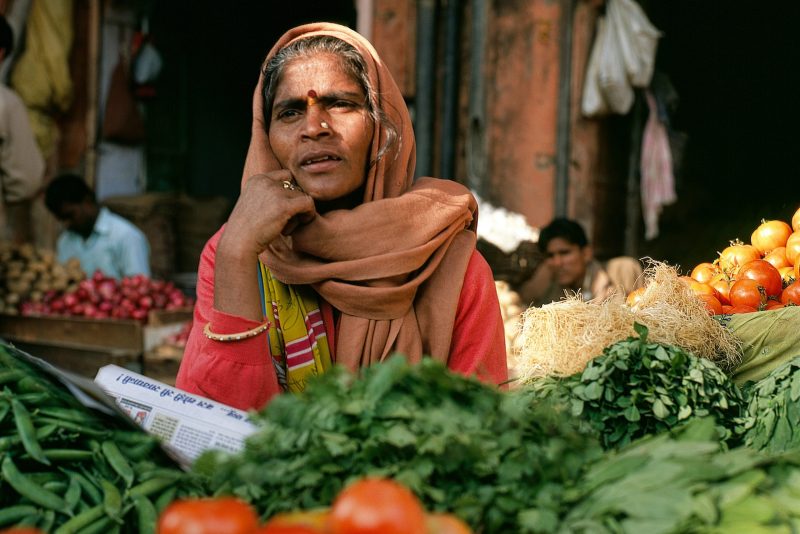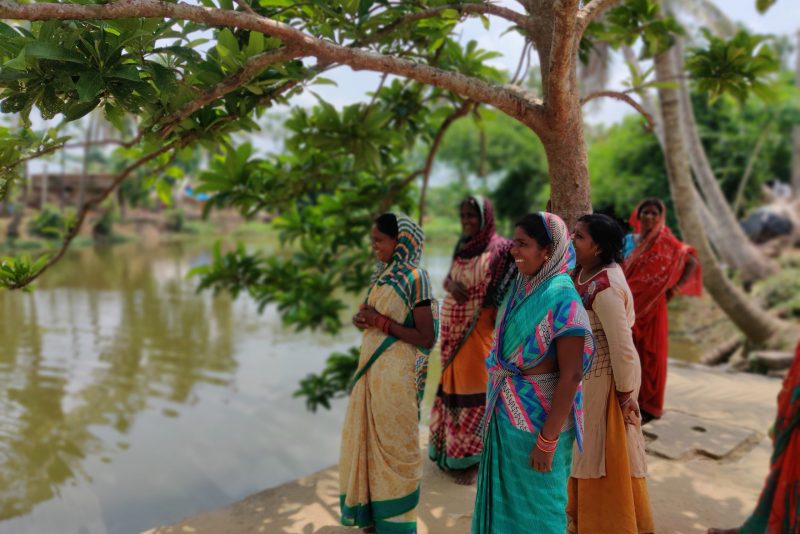Eyes on focus groups

TCi Summer intern Dora Heng (center), a recent Economics graduate, reflects on her experience during her two weeks of village-based field work. She shares her takeaways from participating in Focus Group Discussions. (Photo features household survey. Credit: J. Ames)
Focus group discussions (FGD) serve as a useful research methodology to gather qualitative data on a specific topic of interest. As the intern team working on the MNDA with ICRISAT, we are particularly interested in understanding how eating out behavior and packaged food consumption influence dietary diversity at the individual and household level. Over the course of the past two weeks, our team had been immersed in field work in rural villages. Aside from conducting household surveys, we facilitated a total of 8 FGDs across 4 different villages, namely the villages of Dokur and Aurepelle in Telangana state, and the villages of Kinkhed and Kanzara in Maharashtra state.
There are two key lessons I have learnt from this experience:
1. Put in the extra effort to ensure diverse representation of voices
For every FGD, we did our best to recruit participants from different socio-economic backgrounds, castes, and gender. In Kinkhed and Kanzara where agriculture is the primary livelihood, it was a logistical challenge to have the agricultural laborers who were working in the fields during the day to participate in the FGD at the same time as the other participants from different socio-economic backgrounds. To circumvent this, we conducted a separate mini-informal discussion with several agricultural laborers later in the day after they were back from their work, so to gather their perspectives on eating out. We learnt that even among different socio-economic castes, there has been an increase in eating out behavior.
For each village, we also conducted one mixed gender FGD and one women-only FGD. Unfortunately, in certain villages, due to cultural gender norms, the women were less likely to speak out while the men dominated the discussion. When such a situation happened, I learnt that as facilitators and moderators we need to be tuned in to all participants and direct the flow of conversation to both women and men.
This experience allowed us to gain some interesting insights into the gender dynamics behind the decision of purchasing food prepared outside the home. Women seldom go outside the home as compared to men, and so it was mainly the males who consumed food purchased outside the house.

Mixed-Gender Focus Group Discussion in Kanzara
2. Rapport can take you farther.
For our field work, we were greatly blessed with the opportunity to work with experienced field investigators from the ICRISAT Village Level Surveys project. Our investigators have spent several years living in the villages and have established a tight knit bond with the villagers. As outsiders to the village, we established rapport by starting each session with a “Namaste” greeting and introducing our names. We also included ice-breaker questions such as “What is your favorite food?”, and had everybody taking turns to share around the circle (including our TCi team). This helped the FGDs greatly, as it helped to break the ice (everyone can talk about food!) and it created a safe sharing space for the participants who were able to voice their thoughts and insights freely.
Overall, focus group discussions are a great tool in a researcher’s toolkit. Not only do you get to know the people better, you gain new insights that otherwise may not have come up in household surveys alone.





